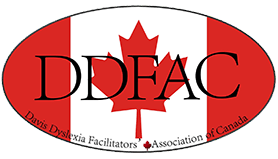Adult Dyslexia Correction Program
- Do you try to hide mistakes?
- Are you often uncertain about spelling, word meaning, or which “rule” to follow with grammar?
- Do you have too many coping mechanisms to keep up with?
- Do your symptoms get worse when you are overwhelmed or stressed out?
- Do you remember struggling in school as a child?
…if any of these are true, Dyslexia could be the cause.
Common Characteristics of Adult Dyslexia
Most adult dyslexics will exhibit at least 10 of the following traits and behaviors. These characteristics are often inconsistent, and may vary depending upon the day or situation.
Career
- Employed in job/position that will hide difficulties or not require dealing with problematic areas.
- Becomes frustrated or overwhelmed with long forms or sequential processes.
- Thrives in careers where visual-spatial / kinesthetic talents can be realized: (ie. Trades, engineers, architects, entrepreneurs, the arts, athletes, etc).
- May pass up promotions or advancement opportunities that would require more administrative work or require standardized tests to be accepted.
- Has difficulty focusing and staying on one task.
- Highly successful / over achiever, or considered “not working up to potential.” Either way, displays extreme work ethic.
- May be a perfectionist and overreact when they make a mistake.
- Out-of-the-box thinker or operates with very strict rules for themselves.
- Learns and leads best through hands-on experience, demonstrations, experimentation, observation, and visual aids.
General
- Highly intuitive – known to have “street smarts.” Is often “dead on” in judging personalities of others or sensing the emotions of others.
- Remembers struggling in school.
- Frequently have dyslexic children and experience guilt when seeing own child struggle. Insecurities arise while reading to own children or helping them with homework.
- Easily distracted/annoyed by noises and other things in environment.
- May appear to “zone out” and be unaware of what is happening with poor recall of conversations or sequence of events.
- Misspeaks, misuses, or mispronounces words without realizing it.
- May have poor balance or is/was very athletic.
- May confuse past conversations or be accused of “not listening.”
Reading, Writing and Spelling
- Difficulty reading unfamiliar fonts.
- Avoids reading out loud. May dislike public speaking.
- Will commonly perceive that they “read better silently.”
- Has adopted compensatory tricks to remember spelling.
- Reading fluency and comprehension fluctuates depending upon subject matter.
- Frequently has to re-read sentences in order to comprehend.
- Fatigues or becomes bored quickly while reading.
- Reliance on others (assistants, spouses, significant others) for written correspondence.
- Uncertainty with words, punctuation, and spelling when writing. Reliance on spell-check and grammar-check.
- Poor handwriting – masks spelling mistakes.
- Writes with all capital letters, or mixes capital letters within words. Abbreviates words frequently.
Math, Time Management, Directions
- May understand higher math, but can’t show it on paper.
- May excel at math, or may still rely on tricks for remembering math facts.
- May have difficulty with making change.
- Difficulty with left/right and/or North, South, East, West.
- Gets lost easily or never forgets a place they’ve been.
- Difficulty reading maps.
- May lose track of time and is frequently late – or is highly aware of it and is very rarely late.
- Finds it difficult to estimate how long a task will take to complete.
Behavior, Health, and Personality
- May have a short fuse or is easily frustrated, angered, or annoyed.
- Easily stressed and overwhelmed in certain situations.
- Low self-esteem.
- Self-conscious when speaking in a group. May have difficulty getting thoughts out – pause frequently, speak in halting phrases, or leave sentences incomplete.
- Sticks to what they know – fear of new tasks or any situation where they are out of comfort zone.
- Extremely disorderly or compulsively orderly.
- Confusion, stress, physical health issues, time pressure, and fatigue will significantly increase symptoms.
Why is the Davis® Program a great fit for adults?
1. The Program is facilitated one-on-one and is designed to meet your specific goals.
2. The Davis Program is a one-week, intensive program – no weekly visits!
3. Follow-up work is done independently – on your schedule, in your own home, and with no extra expense!
4. It provides tools for focus, mental clarity, stress-management, energy-level management and skills that will
ease reading difficulties.
How does the Davis® Program work for adults?
Motivated adults bring a level of maturity and selfawareness that make the program extremely rewarding and successful! We have helped adults of all ages to improve their reading, writing, spelling, focus, and stress-levels.
Working one-on-one through the Davis Dyslexia Correction Program steps in a 100% judgement-freezone, adults are able to confront and release confusion and anxiety with letters, words, and punctuation – finally understanding how to control the dyslexic symptoms that make functioning in various situations difficult. Adult dyslexia correction can help adults conquer their stresses with:
- Interviewing
- Public Speaking or reading out loud
- Studying/understanding complex subjects (college or work-related)
- Commonly misused or misspelled words
- Punctuation/grammar usage
- Stress management
- Focusing techniques
- Listening skills
- …and much more!
We welcome your questions or inquiries. Please contact us at [email protected] or fill-in and submit the form.


